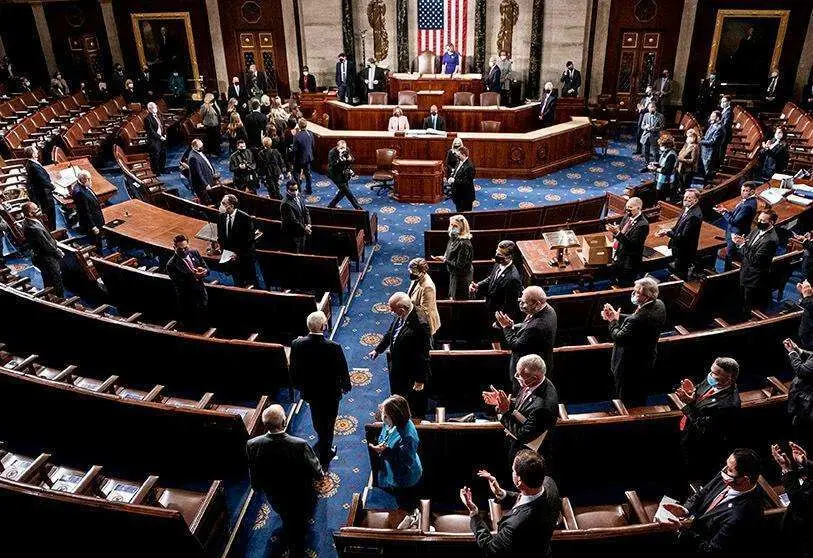A Tuesday that could be black

Donald Trump is looming on the horizon, and will in all likelihood run for the White House again. He will do so as soon as the results of the mid-term elections are known, which are likely to be a resounding victory for the Republican Party.
The most important thing about these elections will surely not be to test the sympathies of American voters; after all, their swings are part of the game of democracy, which in the United States has developed, with all its imperfections, impeccably throughout its history. That trajectory could be abruptly interrupted. In fact, the threat is real, since it is unusual for 60% of the Republican candidates, both for the 435 seats in the House of Representatives and the 35 in the Senate, to threaten not to recognise the result if it is not favourable to them. All of them follow in the wake of Trump himself, who two years after his defeat by Joe Biden continues to insinuate that his victory was stolen, an argument that has been rejected by more than sixty courts across the country.
The persistence of this argument has been taken on board by a large part of the Republican electorate, so much so that they have internalised not only that the current president, Biden, illegitimately occupies the country's highest office, but also that it extends the mantle of suspicion to the rest of the institutions, which is tantamount to questioning the entire democratic system. This is not good news for the superpower that embodies a system of values that is diametrically opposed to that currently represented by the other two great powers questioning the rules-based international order: Vladimir Putin's Russia and Xi Jinping's China.
That this leadership of democratic institutions and values is faltering is also bad news for the bloc of countries that make up what is known as the West. It is no coincidence that in many of these countries populists who also aspire to wipe out the system of freedoms and replace it with totalitarianisms that history has amply demonstrated the individual and collective tragedies they entail.
It would not bode well if the final results of Tuesday's elections take a long time to be known and accepted, not only because of the tightness of the contest, but also because of the expected flood of complaints and challenges from some of the losers. The images of the storming of the Capitol in Washington are still fresh in the memory, and there are disturbing warning signs of voters ready to take to the streets or the hills if the polls do not match their own dreams.
This is not the worst time for voters to have to choose between different candidates and programmes. This time, as so often in the past, the economy is the central issue, as skyrocketing inflation and energy prices that can break any budget forecast have impoverished large swathes of the population. As always when such situations arise, demagogues seek or accentuate the targeting of enemies, and in this case the target has been immigration, which, as in so many other parts of the world, is seen as the proximate culprit of their own adversities.
If the Republican Party, dominated by Donald Trump, gains control of both Houses, Joe Biden's term in office could be over, as it will be impossible for him to implement any of his plan for governing in the next two years. At most, his work would be reduced to the area of foreign policy, where he does not need the endorsement of the legislative chambers. And even then, there would be consequences for US behaviour, for example in the Ukrainian war. Europe should prepare for a return to Trump's hard line, the one that belittled the European Union and demanded that its members, who are also in NATO, spend more money and resources to take care of their own security, even if it means throwing what is left of the welfare state to the wind.

